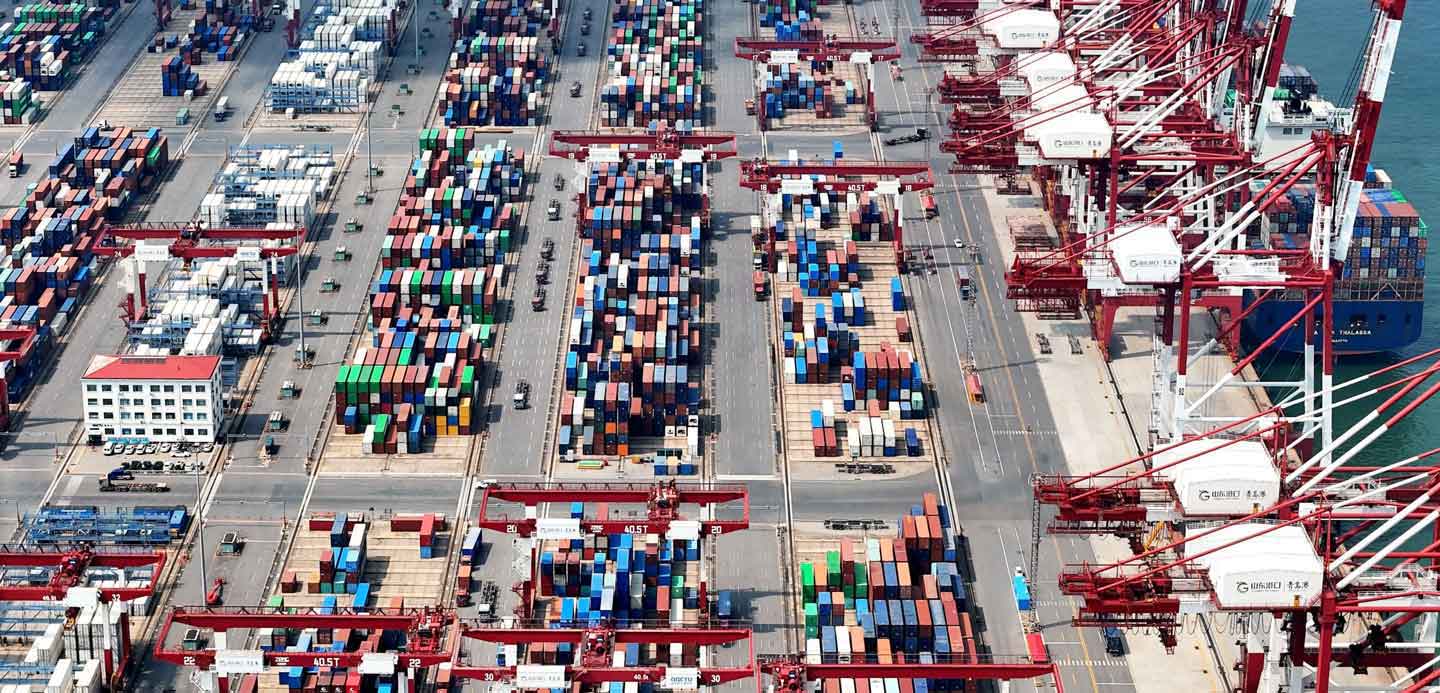- 5 minutes
- Article

- Growing a business
- Enable Growth
What bold manufacturing supply chain strategies will be needed in the decade ahead?
We asked three of this year’s WIRED Trailblazers—our community of innovative, fast-growing scale-ups—to weigh in…
Supply chains were once taken for granted—just another routine facet of business operations. How times have changed. Over the past decade they have faced disruption and scrutiny like never before, thrusting them into the spotlight.
International conflict, natural disasters, a global pandemic — there has been reminder after reminder that supply chains can be surprisingly brittle. “Manufacturers are now absolutely focused on ensuring their supply chains are robust and resilient,” says Rohit Moudgil, Head of Manufacturing & Industrials at HSBC UK. “At the same time, they’re having to contend with another imperative, which is to ensure they align with the ESG goals of their own organisation as well as their customers’ and partners’.”
The latter involves improving environmental sustainability. A report published by the World Economic Forum argued that decarbonising supply chains would be “a ‘game changer’ for the impact of corporate climate action”. But there is also pressure for supply chains to be socially responsible, too: free of child labour and unconnected to human rights abuses.
As regulatory pressures concentrate minds, manufacturers are increasingly exploring emerging tools to help address these challenges.
We spoke to three manufacturing Trailblazers to ask them what new supply chain strategies they expect to see come to the fore over the decade ahead…
Products are going to need their own passports.
|

Circulor helps companies gain visibility into their supply chains to demonstrate responsible sourcing, improve their ESG performance, and manage risks. With £34.6m in funding, Circulor’s customers include Volvo Cars, Polestar, Tesla, and BHP.
“Over the next decade or so, we’ll all know what a digital product passport (DPP) is. Fundamentally, DPPs — digital documents which hold information about the provenance of a product, its components and materials — make manufacturers responsible for what happens upstream, but they can also equip us as consumers to make better choices. I believe we’ll all get used to scanning QR codes or touching our phone on an NFC when we make purchases to discover more about how and where something was made. This trend has already begun with batteries.
“The system requires digitalisation right through the supply chain for it to work. Let’s imagine you have a battery that includes cobalt from a mining site in Congo. The DPP needs to show and validate where it came from, and prove the sustainability impact. So: the material is bagged and tagged with, say, a QR code. When approved people scan it and log its origins on the app, facial recognition confirms their identity and GPS confirms the location.
"The material itself is measured and weighed with wireless peripherals connected to the app, and added into the DPP. At no point has a human entered any data, so we know it’s trustworthy. The same approach is taken with other materials and components as they move through the supply chain to the final product. All this data is collated onto a distributed ledger, like blockchain, to ensure transparency and trust among all these disparate supply chain actors, while promoting more sustainable practices.
“DPPs have very broad applicability. As the cost comes down it will one day make economic sense even for a T-shirt — something that other organisations are already actually working on.”
‘Lights-Out’ factories will increase supply chain resilience.
|

iCOMAT makes components from composite materials. Composites comprise layers of strong fibers, such as carbon fibers, combined with a resin that holds the fibers together. iCOMAT’s ‘fiber-steering technology’ enables the efficient production of lightweight, high-performance components at scale, and it supplies these to the automotive, aerospace and defense sectors.
“As an alternative to outsourcing, automation is effectively about taking all the skills and experience from your highly skilled manufacturing workforce — who you continue to emplo y— but emulating them elsewhere in the world. You redirect that workforce to developing the factory that builds the product, instead of the product itself.
“Many companies are trying to get close to a ‘lights-out’ factory: one that is so automated it could run in the dark. If that can be achieved, then it's incredibly easy to replicate these factories across the world, which creates a much more resilient supply chain. If you want to create assets in a certain place, closer to where the end product is needed for instance, there is no need to find people locally, which is increasingly difficult. It also protects you from geopolitical disruption and strained trading relationships. A production line can be rapidly replicated anywhere in the world, so if for whatever reason you can no longer produce in a certain territory, you could very quickly relocate that line.
“This kind of automation is eventually likely to extend to the supply chain as a whole. I expect we’re going to see robotic hardware and automated vehicles being rolled out at every step, from the manufacturing site to container storage, shipping and transit through ports. It all has the potential to reduce friction and protect businesses from disruption.
“Our aim is to work towards the world’s first lights-out factory for composites manufacturing over the next few years, then the next big step will be to replicate it across the world. There are other companies in our sector and beyond which are also examining this as they try to service global demand.”
Businesses will increasingly prioritise ‘circularity’.
|

Nyobolt develops innovative batteries to aid decarbonisation. Alongside industrial and robotics applications, the company has a major focus on EVs. It wants to make electric vehicles as convenient as combustion-driven vehicles, with faster charging and greater battery uptime. The company recently demonstrated a sports car that charges in just five minutes.
“The pressing challenge for manufacturers is how to get more out of the limited resources that we have as a planet. That means much more than just recycling, and I think there are two major trends.
“The first is shortening supply chains. For example, in the past, you might have had 10 companies in a manufacturing supply chain. By looking at things holistically, and starting from the end use, companies can design more efficient processes, cutting down the number of steps required to manufacture their products, and therefore the number of companies and locations involved, all resulting in fewer emissions and less waste.
“The second trend is circularity. Manufacturers are trying to find ways to conserve and reuse raw materials, and new technologies are making this more efficient. At Nyobolt, we’re constantly looking at the best approaches to recycling or reusing the metal oxide anode materials that would otherwise be lost due to inefficiencies in the battery manufacturing processes.
“Another key component of circularity is products whose lifetimes can be extended in various ways. One is designing for future repair or refurbishment, making it easier to disassemble and swap out components that have become defective or reached end-of-life. We’ll increasingly see this trend in consumer electronics, phones, and in electric vehicles.
“It’s not just good news for the planet. One of the biggest reasons for this change is the growing realisation from manufacturers that effective use of materials leads to cost benefits, operational advantages, and greater resilience.”
Key points
‘Digital product passports’ will help consumers verify how and where something was made. The battery sector is already embracing this, and other sectors are expected to follow.
‘Lights-out factories’ can boost supply chain resilience, because they can be easily replicated anywhere around the world regardless of local skillsets.
Circularity in supply chains doesn’t just help the planet, it can lead to cost benefits and operational advantages.


